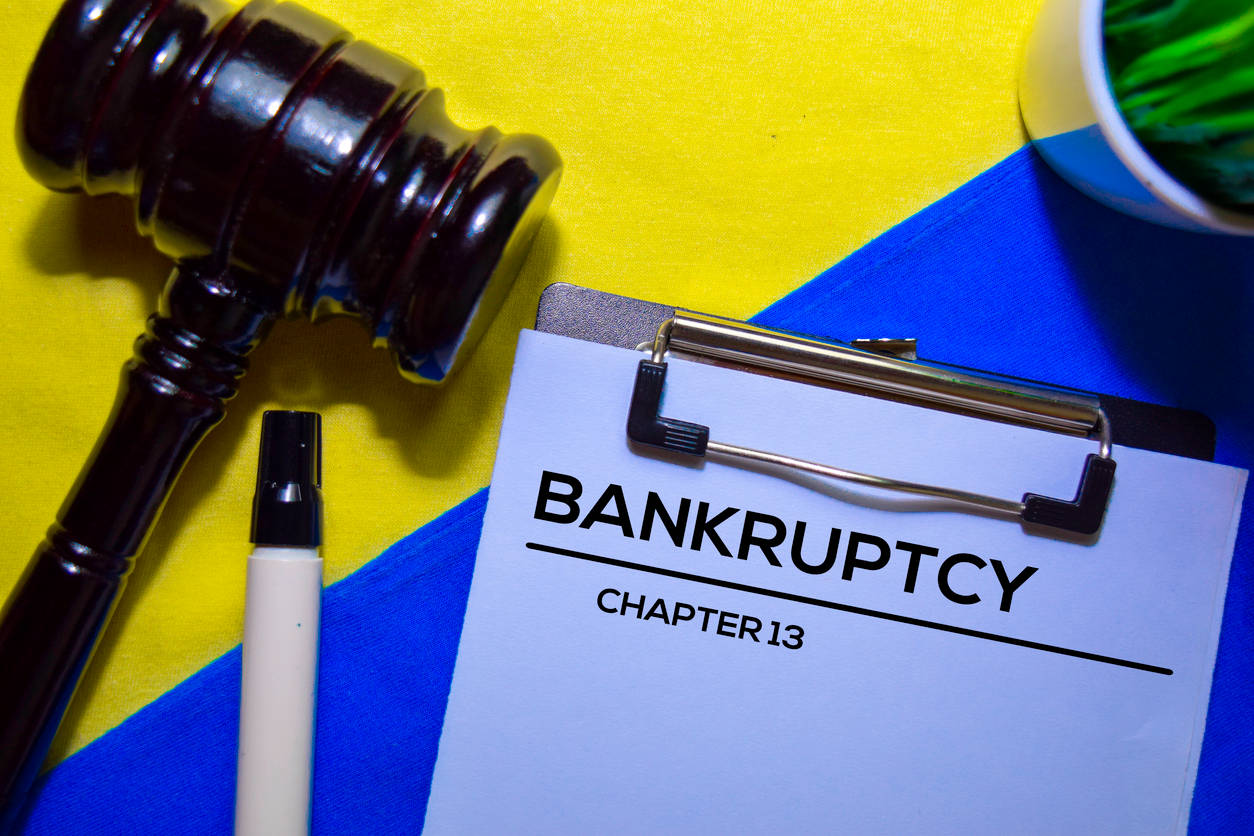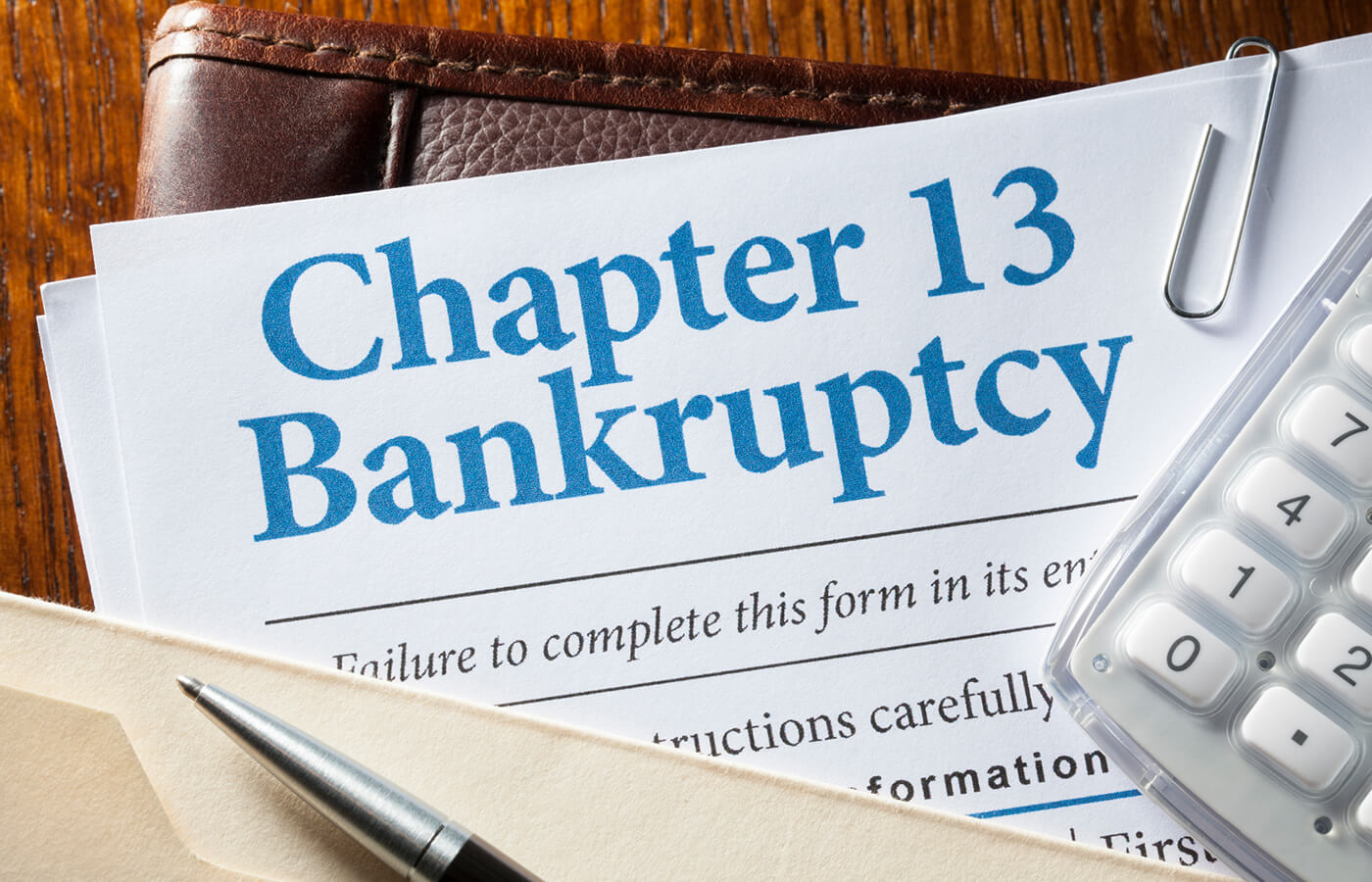When it comes to tackling overwhelming debt, Chapter 13 bankruptcy Georgia offers a lifeline. This legal process empowers individuals to reorganize their finances, regain control over their money, and emerge from the shadows of financial distress. Dive into this comprehensive guide to understand the ins and outs of Chapter 13 bankruptcy in Georgia, empowering you to make informed decisions and reclaim your financial well-being.
Chapter 13 bankruptcy is a powerful tool designed to help individuals manage their debt and achieve financial stability. This guide delves into the intricacies of the process, providing valuable insights and practical advice to help you navigate this legal landscape successfully.
Chapter 13 Bankruptcy Overview

Filing for bankruptcy can be a daunting process, but it can also be a lifesaver for those who are struggling with overwhelming debt. Chapter 13 bankruptcy is a type of bankruptcy that allows you to reorganize your debts and create a payment plan that you can afford. This can give you the opportunity to get back on your feet and start rebuilding your financial future.
Chapter 13 bankruptcy in Georgia can be a complex process, but it can provide relief for those struggling with debt. If you’re considering filing for bankruptcy, it’s important to do your research and understand the process. You can find more information about iron flame chapter 25 online or by speaking with an attorney.
Once you’ve filed for bankruptcy, you’ll need to attend a meeting of creditors and create a repayment plan. The repayment plan will outline how you’ll pay off your debts over time. Chapter 13 bankruptcy can be a helpful tool for getting out of debt, but it’s important to understand the process before you file.
To be eligible for Chapter 13 bankruptcy, you must have regular income and be able to make regular payments on your debts. You must also not have filed for bankruptcy in the past six years. There are some debts that cannot be discharged in Chapter 13 bankruptcy, such as student loans and child support. However, most other types of debt, such as credit card debt and medical debt, can be discharged or reorganized.
Filing for Chapter 13 Bankruptcy
The process of filing for Chapter 13 bankruptcy begins by filing a petition with the bankruptcy court. The petition will include information about your income, expenses, debts, and assets. You will also need to file a plan that Artikels how you will repay your debts over time. The court will review your petition and plan and, if approved, you will be placed under a Chapter 13 bankruptcy order.
Benefits of Chapter 13 Bankruptcy
There are many benefits to filing for Chapter 13 bankruptcy. Some of the benefits include:
- You can stop creditors from contacting you.
- You can lower your monthly payments.
- You can discharge some of your debts.
- You can get a fresh start on your financial future.
Drawbacks of Chapter 13 Bankruptcy
There are also some drawbacks to filing for Chapter 13 bankruptcy. Some of the drawbacks include:
- You will have to make regular payments to the bankruptcy trustee.
- You may have to sell some of your assets.
- Your credit score will be negatively affected.
Alternatives to Chapter 13 Bankruptcy
If you are considering filing for bankruptcy, it is important to weigh the benefits and drawbacks of Chapter 13 bankruptcy. There are other alternatives to bankruptcy that may be a better option for you. Some of these alternatives include:
- Debt consolidation
- Credit counseling
- Debt settlement
Chapter 13 Bankruptcy Repayment Plan

When you file for Chapter 13 bankruptcy, you’ll need to create a repayment plan that Artikels how you’ll pay back your debts over time. This plan must be approved by the bankruptcy court, and you’ll need to make regular payments according to the plan’s terms.
There are different types of repayment plans available, and the type of plan you choose will depend on your specific financial situation. Some common types of repayment plans include:
- Wage earner plans: These plans are designed for individuals who have regular income from employment.
- Self-employed plans: These plans are designed for individuals who are self-employed.
- Liquidation plans: These plans are designed for individuals who do not have enough income to repay their debts in full.
The amount of debt that you must repay under a Chapter 13 plan will depend on your income, expenses, and assets. The bankruptcy court will consider all of these factors when determining the amount of your monthly payment.
Formula for Calculating Chapter 13 Plan Payment:
Chapter 13 bankruptcy Georgia can be a confusing process, but it doesn’t have to be. Just like in chapter 3 summary of animal farm , where the animals are trying to understand their new freedom, Chapter 13 bankruptcy Georgia can give you a fresh start.
It’s a way to reorganize your debts and get back on your feet financially.
Monthly Disposable Income – Reasonable and Necessary Expenses = Amount Available to Creditors
It’s important to note that Chapter 13 bankruptcy is a complex process, and it’s important to seek the advice of an experienced bankruptcy attorney before filing for bankruptcy.
Filing for chapter 13 bankruptcy in Georgia can be a daunting process, but it’s important to remember that you’re not alone. Many people have gone through this process and come out stronger on the other side. If you’re looking for more information about chapter 13 bankruptcy, I recommend checking out this frankenstein chapter 11 summary . It provides a great overview of the process and can help you understand what to expect.
Once you’ve done your research, you can start taking steps to file for chapter 13 bankruptcy in Georgia.
Automatic Stay and Debtor Protections

Filing for Chapter 13 bankruptcy triggers an “automatic stay,” which is a court order that halts most collection actions against the debtor. This stay provides debtors with much-needed breathing room to reorganize their finances and catch up on past-due payments.
The automatic stay prevents creditors from taking certain actions, such as:
– Filing lawsuits against the debtor
– Attempting to collect debts through wage garnishment or bank account levies
– Repossessing property
– Foreclosing on mortgages or other liens
The automatic stay provides debtors with a temporary respite from creditor harassment and allows them to focus on rebuilding their financial health.
Exceptions to the Automatic Stay
While the automatic stay provides broad protection to debtors, there are a few exceptions. For example, the stay does not prevent creditors from:
– Continuing to charge interest on debts
– Filing criminal charges against the debtor
– Seeking relief from the automatic stay for cause, such as if the debtor is not cooperating with the bankruptcy process.
It’s important for debtors to be aware of these exceptions and to seek legal advice if they have any concerns about the automatic stay.
Chapter 13 Bankruptcy Discharge

Once you’ve completed your Chapter 13 bankruptcy repayment plan, you’ll be eligible to receive a discharge of your debts. This means that the court will forgive the remaining balance of your debts, and you’ll no longer be legally obligated to repay them.
Conditions for Discharge
To receive a discharge under Chapter 13 bankruptcy, you must meet the following conditions:
- You must have completed your repayment plan in full.
- You must not have committed any fraud or other misconduct during your bankruptcy case.
- You must not have received a discharge in a previous bankruptcy case within the past six years.
Effects of Discharge, Chapter 13 bankruptcy georgia
A Chapter 13 discharge has several important effects on your credit and financial obligations.
- It will eliminate the legal obligation to repay your discharged debts.
- It will stop all collection efforts on your discharged debts.
- It will improve your credit score over time.
- It will allow you to rebuild your financial future.
Closing Summary: Chapter 13 Bankruptcy Georgia

Chapter 13 bankruptcy Georgia presents a beacon of hope for those struggling under the weight of unmanageable debt. By understanding the process, your rights, and the potential outcomes, you can harness this legal tool to regain control over your finances and embark on a path towards financial freedom. Remember, knowledge is power, and this guide equips you with the information you need to make informed decisions and emerge from this challenging time stronger than ever before.